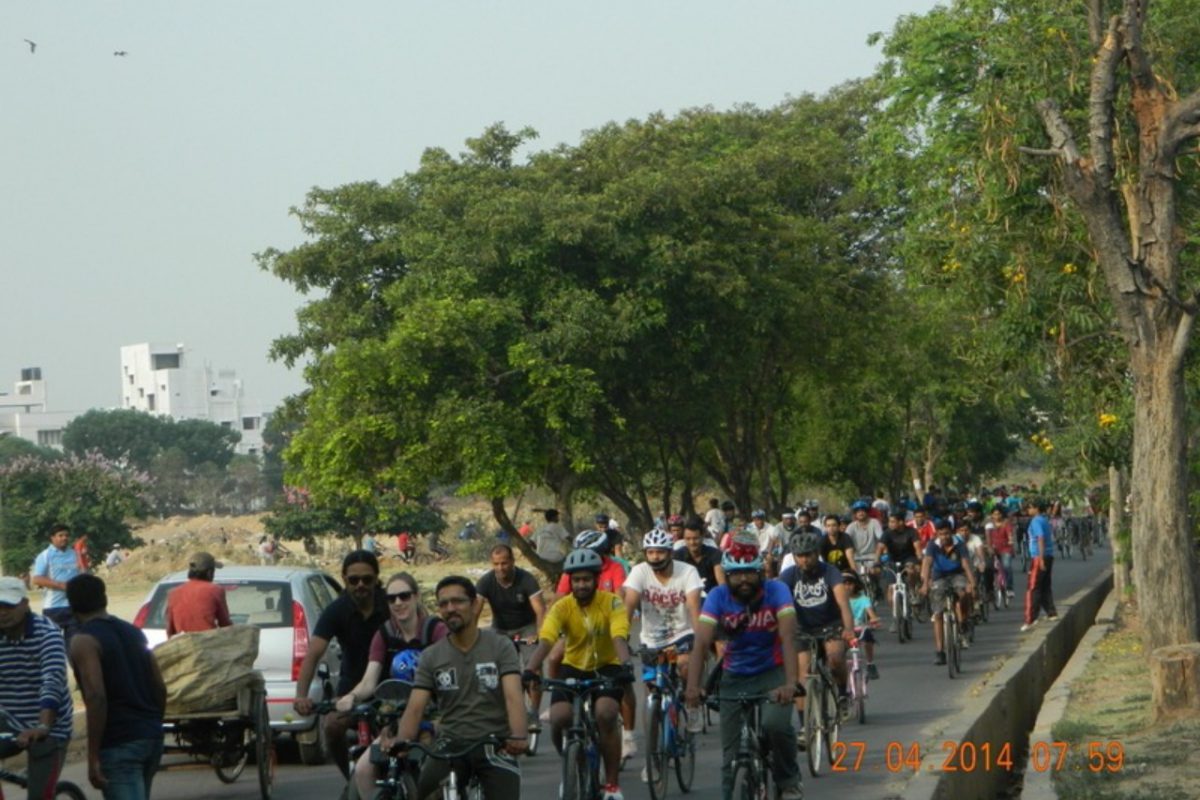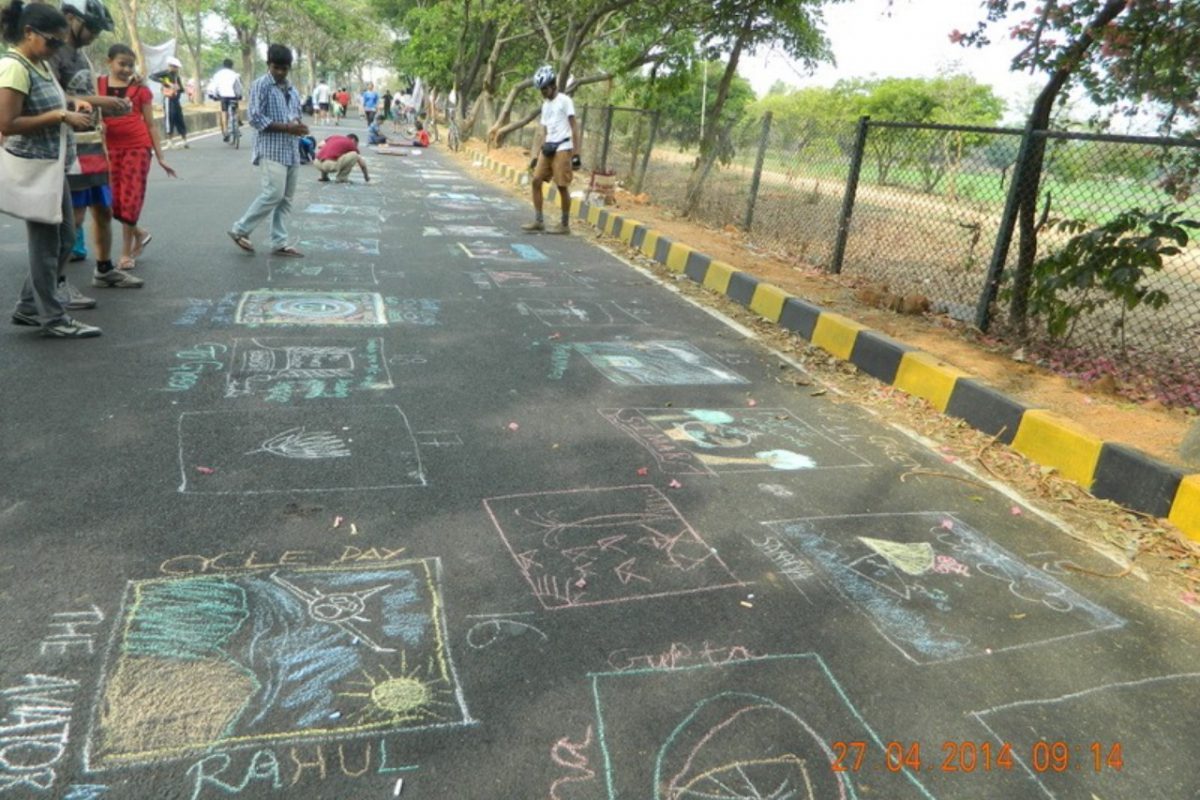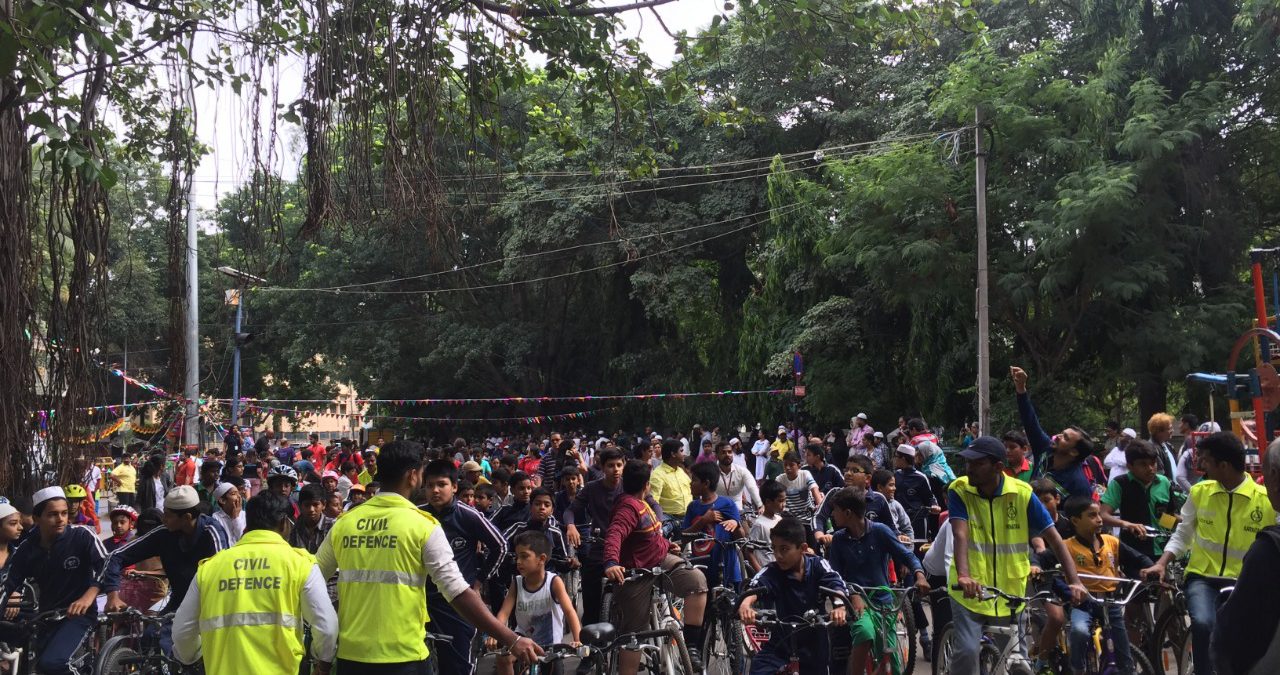
Keep up with our latest news and projects!

We live in an era where cities prioritise wider roads and the use of personal vehicles. In India, some citizens and transport planners are trying to change this. In October 2013, the Cycle Day was born, a public-private partnership aimed at bringing about attitude and behavioural changes in Bangalore.
At first, Cycle Day was organised once a month, leading to the formation of the Bengaluru Coalition for Open Streets (BCOS). Participants included government and non-governmental organisations; such as the Directorate of Urban Land Transport (DULT), Department of Urban Development, Government of Karnataka, ESAF, and Praja RAAG.
The campaign was launched to promote cycling and an open street concept. Its aim was to raise public awareness about non-motorised transport as a sustainable mode of mobility, pedestrianisation and the government’s plan to implement the National Urban Transport Policy, 2006 (NUTP). It also encouraged the public to use bicycles for short-distance commutes and to adopt a healthier lifestyle. The team envisions that these initiatives will make Bangalore a bicycle-friendly city.
Throughout the planning stage, DULT, the nodal agency implementing the NUTP, took the initiative of getting other government bodies on board, including Bengaluru Bruhut Mahanagare Palike (BBMP), Bangalore Traffic Police (BTP), and 101 Ambulance. The event quickly became a weekly program, within 18 months of operations. The core team engaged with many community partners from different neighbourhoods spread across Bangalore. These volunteers, who came from a range of economic backgrounds, committed to keeping the event open to people of all sections, ages, and abilities. At this point, each community was advised to visit as many other places and partners as possible to learn what it takes to organise such a program.
Any Resident Welfare Association (RWA) or NGO can approach BCOS or DULT to initiate this process. Over six years, the team equipped 60 community partners and conducted more than 500 Cycle Day events. These communities spread the message to promote sustainable transport, the safety of cyclists, and open street events.
The cycle rides range from a distance of 3 to 5 km, after which the streets will be open for people to engage in various activities. These activities engage all age groups, allowing different generations to bond together. The youth play games they have never heard of while the older crowd gets to cherish and experience their childhood memories once again. These games inculcate qualities of patience, sharing, and using tactics to overcome hurdles. During these events, the streets are blocked for about three to four hours which provides opportunities for people to perform group activities such as Zumba and yoga. Various programs such as waste segregation, terrace farming, gardening and bike repairing are also conducted. About an average of 150 – 200 people are engaged every Sunday, improving social interaction within the neighbourhood.
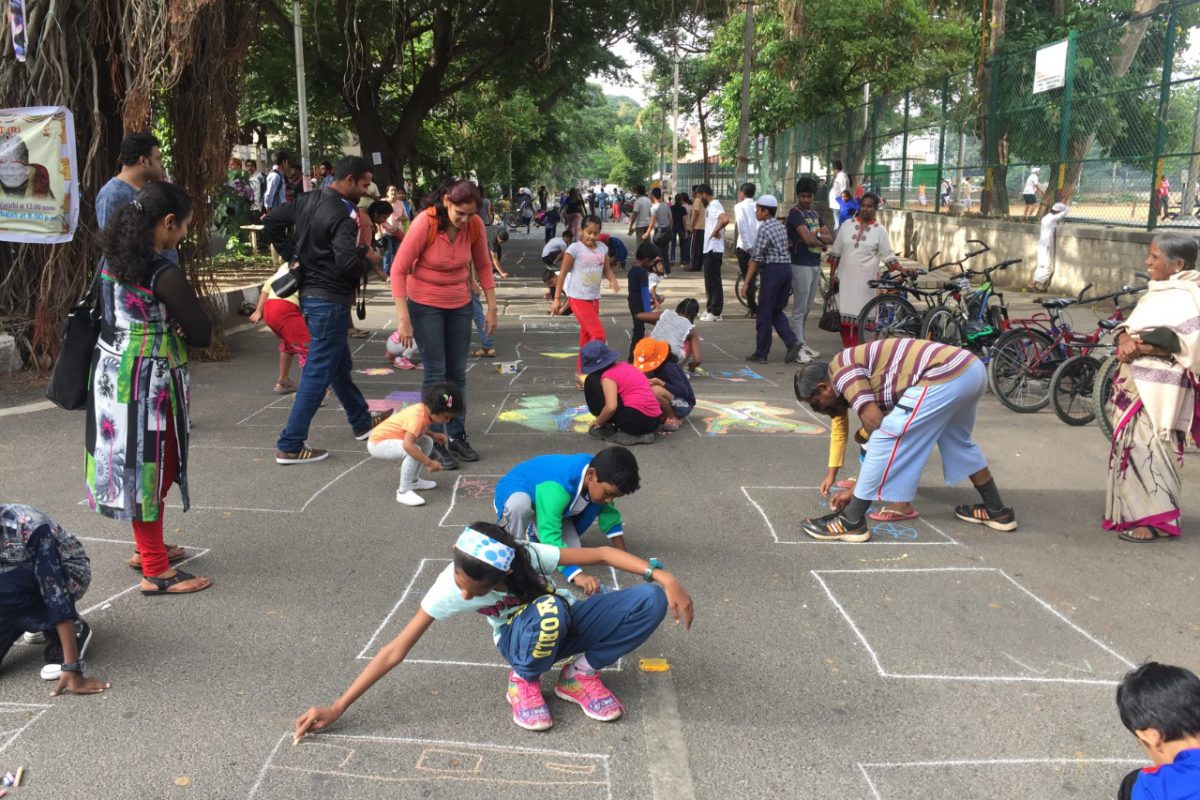
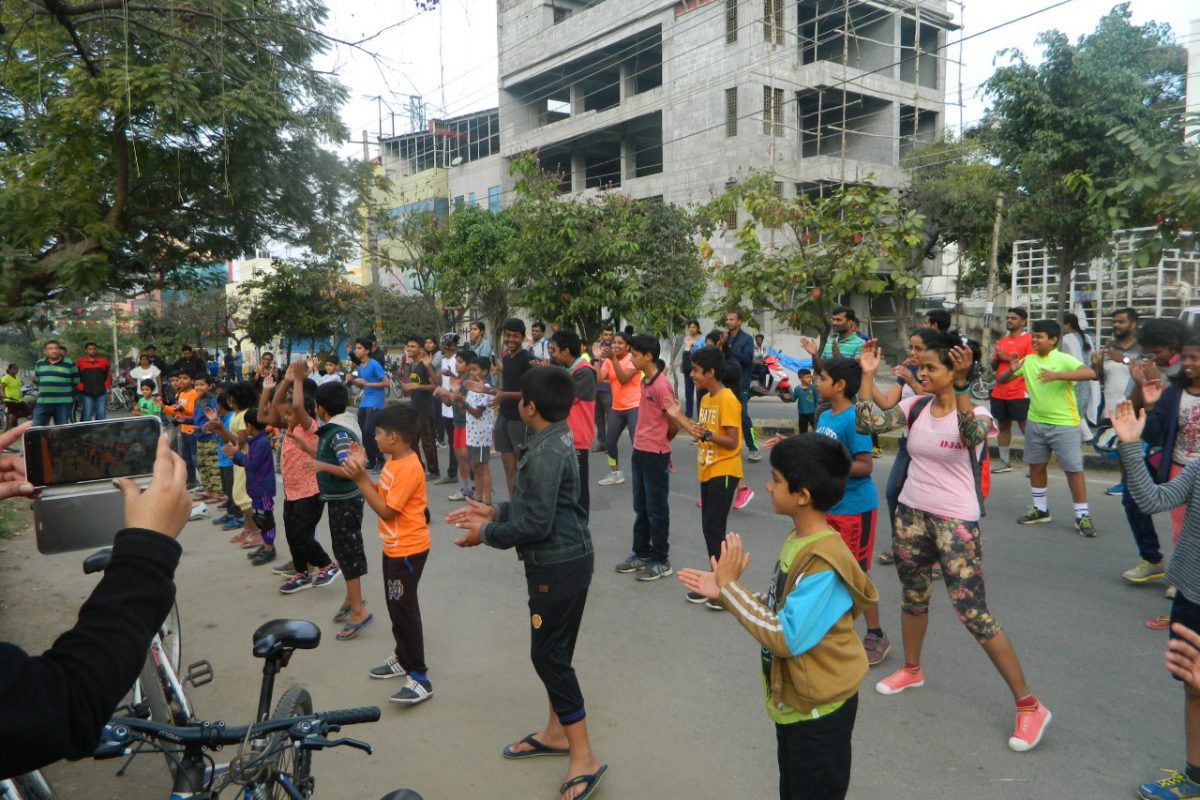
Over the years, this event has attracted many new partners due to the wide coverage by social media and print publications. BCOS and community partners have also introduced the concept to new partners through their network. Once convinced, they meet with the DULT and BCOS team who brief them about the objectives and goals of the event. The team then identifies the stretch where the cycle rides and open street events can be conducted safely and where they won’t obstruct the general public. After the completion of the initial step, the community partners sign the Memorandum of Understanding with DULT, which is renewed every three months. The DULT then works with the BTP and the media.
On the day of the event, the local police, traffic wardens, and the community volunteers cordon off the traffic for the cycle ride. One BCOS member is always present to handhold and help check the process of the program.
The major impacts created so far are as follows:
